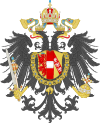The sun is rising and light fills even the narrowest streets of Istanbul. Muslim citizens of the Ottoman capital have just finished their prayers. Just like Mustafa Âli Pasha.
Mustafa is in a hurry. He has to meet the greatest person of the whole Empire, Sultan Abdülaziz I, today. Luckily the Dolmabahçe Palace, home of the glorious Sultan, isn't that far away from Mustafa's own residence. Mustafa is carrying many papers and documents with him, as usual. With his fast pace, he accidentally stumbles and drops half of the papers, scattering them all over the road. An elderly man standing nearby comes to offer help but Mustafa declines. The papers are not meant for ordinary people to see. Mustafa hastily gathers all of his stuff and thanks the stranger for helping. Then he continues with his travel, leaving the old man behind smirking. "People are always so busy" the elderly says out loud. He doesn't know that the man he just saw is an Ottoman statesman.
Mustafa Âli Pasha, Pasha meaning an officer of high rank, is a rather new face in the Ottoman court. He had become the Ottoman ambassador to France at the start of the year 1864, thanks to his excellent skills in both French and diplomacy. There are not many in the Turkish court that dislikes him as he is not only a good speaker, but all in all a very charming person. He is only 36 years old, which isn't that much for an ambassador.
The reason why Sultan Abdülaziz wants to meet Mustafa is quite clear to everyone involved in the happenings of the Sublime Porte. Sultan has only heard good about Mustafa, and so His Greatness probably wants to send him to the soon-to-be hold conference. It is very understandable why Mustafa is little nervous. If things go well in the conference, the Sultan will surely be happy and the court will praise him. Maybe he could even become one of the first Elected-Viziers... But if he screws things up in Paris, Mustafa's career might easily end there.
Finally Mustafa arrives at the Dolmabahçe Palace. He is let in by one of the door keepers, Kapıcı. In the main hall, he is greeted by the chief doorkeeper, whose job is to escort important guests to the Sultan. The chief doorkeeper tells Mustafa to follow him. The two men silently walk for several minutes in the grand aisles of the Palace. Everything is so gorgeous, Mustafa would love to live in a place like it. At last the two men stop at a large double door. Two Kapıcıs besides the door opens it when they see the chief doorkeeper. He tells Mustafa to wait and goes in. He is making sure the Sultan is ready to meet Mustafa. Soon the chief doorkeeper is back, telling the guest to follow him. Mustafa walks in the enormous room and the door behind him is closed.
There he is, the Sultan of the Ottoman Empire, Abdülaziz I. Mustafa humbly greets the Sultan with saying "Peace be upon you, great Sultan. It is an honour to be here." Abdülaziz responds with "and upon you, peace." He thinks a little bit before continuing: "You're just on time Mustafa Âli Pasha. Do you know why I have summoned you?" And Mustafa knows. He answers: "Does it have something to do with the coming conference in Paris, Your Greatness?" Abdülaziz smirks: "I knew you'd guess right. Indeed, that's why you're here. Who do you recommend I should send to Paris?"
Mustafa is surprised with the question. He was so sure he'd be the one going. He tries not to show his surprise and answers: "I think the current Minister of Foreign Affairs, Mehmed Emin Âli Pasha, is excellent in diplomacy, Your Grace." Abdülaziz smirks once again: "Mehmed Emin Âli Pasha is currently occupied with the upcoming elections. He can't be send to Paris. In reality, I already had someone in my mind. Would you, Ottoman Ambassador to France, be interested in representing the Ottoman Empire in the conference of Paris?"
Mustafa is now even more surprised. Had the Sultan just tricked him? After a short silence, Mustafa replies: "If that is what you wish, O' Great Sultan. I can more than gladly represent the Ottoman Empire in the meeting." Sultan is happy that Mustafa accepts the proposal, and finishes the appointment by saying: "I hereby appoint you, Mustafa Âli Pasha, Ottoman Ambassador to France, as the representative of me, the Sultan Abdülaziz I, and my nation, the Ottoman Empire, in the upcoming conference of Paris. You're dismissed."
"I will represent Your Highness and the whole Empire with pride. Peace be upon you."
"And upon you, peace."








